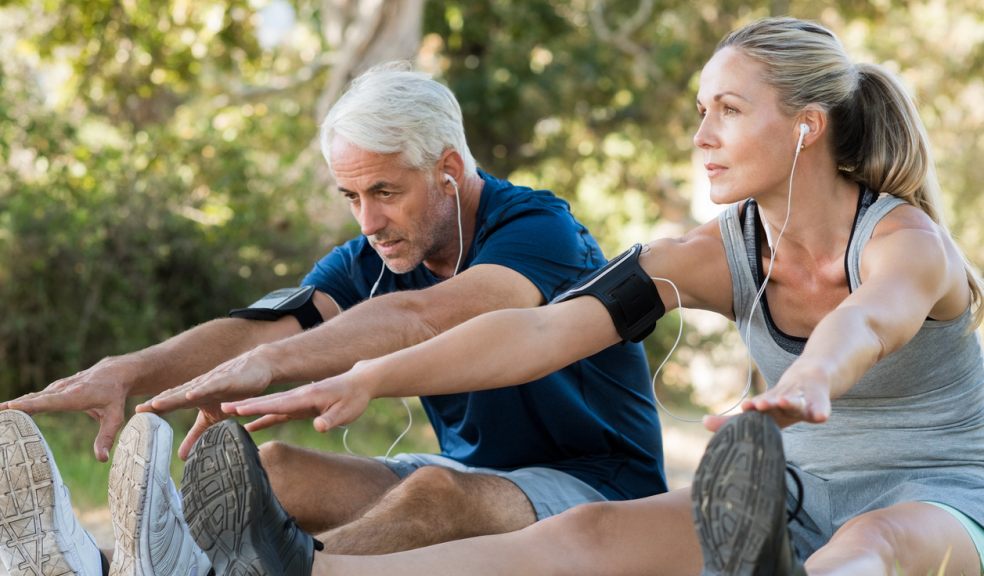
Looking younger on the outside, dying on the inside – Baby Boomers have longer but less healthy lives than their parents
Figures from the Office for National Statistics predict that by 2039, 30% of the UK population will be aged over 60. Whilst our life expectancy continues to rise (an average of 81 years old), our healthy life expectancy has not risen as quickly (65 years old). In light of this, new research from leading nutrition charity the Institute for Optimum Nutrition (ION) has explored how we feel about ageing, as a nation.
The Institute’s research of 2,000 over 30’s across the UK found that 62% of people think that looking young on the surface is a strong indicator that they are fighting off the ageing process and that little emphasis was put on how diet can affect ageing and the preventative measures that can aid the process.
The figures show that most people understand what can help us age well, including keeping physically active and avoiding smoking, but fewer people acknowledge the benefits of avoiding regular consumption of alcohol and less than a third of respondents noted the importance of social activity in healthy ageing, despite its significant potential benefits to keeping an active body and mind.
The findings suggest that there is confusion around how a ‘good diet’ can affect ageing, with many choosing to avoid fats in their diet, when in fact different fats have different effects on the ageing process and good fats are an important element in helping us to age well. It’s the combination of a bad fat, high sugar, processed diet that contributes to the UK’s growing waist bands.
Poor diet and obesity is also having a huge impact on the health services of countries across the globe. In the UK alone, the burden of poor diet-related ill health costs the NHS £5.8 billion each year with the weight of obesity adding a further £5.1 billion annually to an already over-stretched health service.
Deborah Colson from the Institute for Optimum Nutrition said: “It is great to see that that some people understand the importance of diet and lifestyle to healthy ageing. Now we need to make sure that those who are prepared to make change in order to age well can access the resources they need. For those who aren’t interested, we need to understand what the barriers are for them. If you had the choice wouldn’t you rather maintain very good health until close to the end of your life than suffer steady decline and poor health for long, lonely, painful decades?”
ION’s Top Tips for ageing well
Eat less gluten
Gluten is linked to inflammation in the body. Inflammation underlies many of the conditions associated with ageing.
Eat less dairy
Due to other calcium sources such as dark leafy greens, tofu and fish, there is little need to have a food source such as dairy, which many of us find difficult to digest. Reducing dairy can also help reduce skin complaints.
Eat less sugar
In excess sugar has many health effects. Research shows that a diet laced with sugar and refined carbohydrates can be more ageing for the skin than a lifetime of lying in the sun.
Eat more turmeric
Turmeric has been used in India for thousands of years as a spice and medicinal herb. Curcumin is the main active ingredient which has powerful anti-inflammatory effects and is a very strong antioxidant.
Drink less alcohol
Cutting back on alcohol can have some positive effects on the way we look and feel – often within just a few days. Cutting down reduces long term risk of serious illnesses such as cancer and liver or heart disease. Also expect a sound night’s sleep, brighter skin, more time and energy.
Get some sunlight
While it’s important to be cautious when exposing ourselves to the sun it has been proven Vitamin D and UV can boost levels of serotonin, reduce heart disease, prevent diabetes, regulate sleep, boost the immune system and relieve aches and pains.
Get out of the city, away from pollution
When we expose ourselves to a cocktail of airborne pollutants it seriously damages our health. The air pollution we suck into our lungs each day could be shortening our life expectancy.
Remain socially, mentally and physically active
There’s an extensive list of health benefits associated with keeping socially, mentally and physically active, including reduced risk of Alzheimer’s disease, lower blood pressure and the potential reduction of the symptoms of depression.














